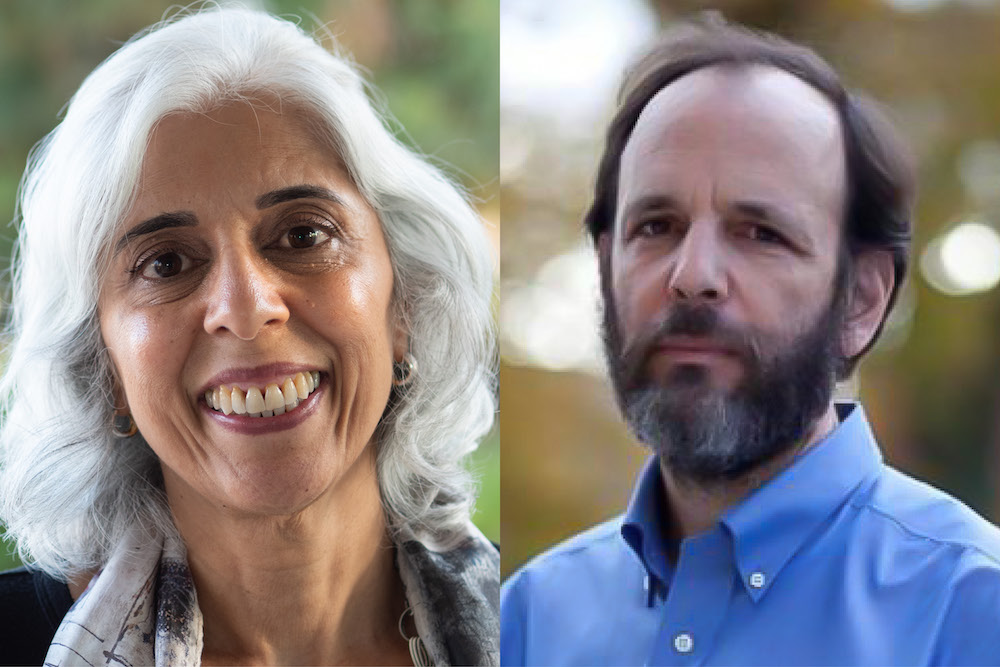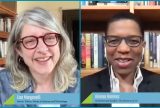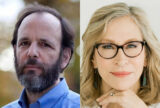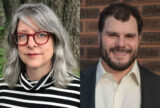
Since World War II, the United States has famously funded research to advance all fields of science and innovation, fueling new disease-fighting drugs, increasing economic productivity, and sparking an information revolution through advances like the internet and GPS. Yet our society remains bedeviled by a host of problems—from healthcare disparities to income inequality and structural racism. Can discovery and invention really fix the entrenched inequities and deep divisions that ail America?
On Tuesday, former DARPA director Arati Prabhakar, who is the CEO and founder of the new nonprofit Actuate, visited Zócalo with Issues in Science and Technology editor-in-chief Daniel Sarewitz to discuss what it takes to create society-changing leaps forward in innovation and technology and overcome one of the most challenging periods in our nation’s history.
Their conversation ranged from the U.S.’s strength in biomedical research and its speed in developing a COVID-19 vaccine, to the tradeoffs between new knowledge created by data collection at scale and its accompanying ethical problems.
Central to the discussion was Prabhakar’s emphasis on redefining the purpose of innovation, which she argues should not only be tasked with creating new products and services, but also implementing changes in practice and policy. She stressed the need to focus research and development efforts toward societal problems, citing the potential for new data architectures capable of preserving privacy while still remaining useful in a research capacity as one example.
After the panelists discussed the DARPA philosophy of solutions-focused research and development—an area of relative weakness for the U.S.—Prabhakar outlined why, in our current innovation landscape, philanthropy may be more effective than current market-driven and governmental approaches to solve for our most pressing societal challenges, such as access to education and healthcare and climate change.
In closing, Prabhakar shared what she considers to be the most essential—and most challenging—element to groundbreaking innovation: creating opportunities for innovators to reflect on, and solve for the ethical and societal implications of the technologies they develop.
Quoted with Arati Prabhakar:
“Our innovation system is very good at doing national security, biomedicine, basic research at universities, information technology. That’s what the half a trillion dollars a year of R&D in the U.S. is just cranking at. And none of those problems or challenges have gone away—it’s all stuff that needs to happen. But what does that have to do with the problems that we weren’t innovating for, like access to opportunity or public health or all the dark issues that come with the glamor and wonder of the information revolution—from trust to privacy—to issues like climate change. The massive number of issues that are going to determine how our story turns out. Innovation isn’t going to single-handedly solve any of these, but it’s hard to see how we’re going to succeed at these challenges without innovating.”
Watch the full conversation below:
Join us and @ISSUESinST to discuss “Can Innovation Really Solve Society’s Problems?” with @ActuateOrg founder Arati Prabhakar and ISSUES editor-in-chief Daniel Sarewitz. https://t.co/O9ee8U6Y3l
— Zócalo Public Square (@ThePublicSquare) December 8, 2020
Past Events in this Series
Meet the ‘Mediators’ Who Connect Scientists and the Public
Fossil Preparators Are a Panacea to a Closed-Off Field—And Their Work Offers a New Model for Research
How do colossal Tyrannosaurus rex and Triceratops fossils get from the ground to the natural history museum? And could that process—which involves not just paleontologists but a largely uncredited group …
Hello Blockchain, Bye-Bye Resumes
Could Digital Learning and Employment Records (LERs) Create a Fairer Hiring Process?
The resume has been around for hundreds of years, and is one of the most vital parts of the hiring process for workers, employers, and educators. But what resumes leave …
Scientists Don’t Have to Be Heroes
How NASA and ASU Astronomer Lindy Elkins-Tanton Is Dismantling the Personality-Driven Culture of the Research Laboratory
Two decades ago, NASA’s Psyche mission principal investigator and ASU Interplanetary Initiative vice president Lindy Elkins-Tanton was working toward her PhD at MIT. It was a place she loved, but …
How Can Inventors Respond to the Real-World Effects of Their Inventions?
A More Holistic Approach to the Field Can Make Technology Better for Society
What is it like to be an inventor? Are inventors responsible for the societal ramifications of their creations? And how could a more holistic approach to innovation lead future scientists …
‘Equating Abundance With Stability’ Is an Existential Threat to the U.S. Food System
Agricultural Scientist Molly Jahn Explains How Our Food Supply Became a National Security Problem
Agricultural scientist Molly Jahn started her career inventing new varieties of squashes and melons. But that work led her to wonder and worry about the security of our global food …
How Will Robot Trucks Change American Life?
For All the Promise of Automotive Trucking, the Future of Our Freight System Has a Human Problem
Robotic trucks are beginning to roll out, carrying cargo and promises of revolutionizing freight hauling, reducing traffic, and lowering pollution. But previous waves of automation have eliminated millions of jobs …










Send A Letter To the Editors